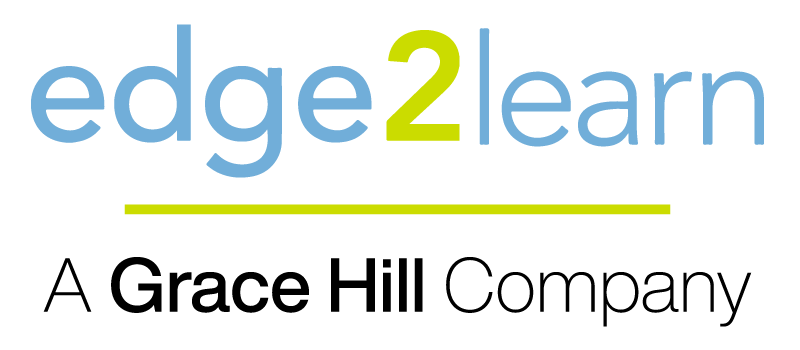Guess what? Studies have shown that in the workplace, emotional intelligence (EQ) can actually have a greater positive impact than IQ! A person with a high EQ can earn promotions more easily and has greater success in leadership roles. Emotional intelligence is about being aware of your emotions and understanding how to express them effectively. Mastering emotional intelligence starts with understanding the emotions of others so that we can successfully approach interpersonal relations with empathy.
To begin, let’s take a look at the neuroscience of emotional intelligence. Different parts of the brain play different roles in the anatomy of emotion. The front part of the brain, the prefrontal cortex, is the thinking and rational center of the brain. This part of the brain controls empathy, impulse control, emotion and decision-making. The hippocampus is the learning center of the brain. This helps us retain information and determine how we will react to certain situations or stimuli. The amygdala, in the center of the brain, is where irrational thinking takes place. This type of thinking can be influenced by the presence of adrenaline which can induce the fight, flight, or freeze response. When the amygdala responds before the rational thinking portions of the brain can catch up, the results can be destructive especially when more than one person is in this state.
The brain is an “open system”, meaning it is susceptible to outside influences. In other words, a person can experience a sort of “emotional contagion” where the emotional response of someone else triggers a similar or reactive response in themselves. This can work in both positive and negative situations. We can practice the following 4 keys to mastering emotional intelligence to help remain in control and avoid “amygdala hijacking” or “emotional contagion”:
- Self-Awareness – Self-awareness is the ability to accurately recognize and name our own emotions as we experience them. You can improve self-awareness when you:
- Build knowledge and understanding on the topic
- Try different assessments to find out where you stand
- Meditate/Reflect
- Ask trusted friends for honest feedback
- Seek formal feedback
- Self-Management – Self-management speaks to how we respond to our emotions and involves behavioral self-control, adaptability, motivation, optimism, and achievement orientation. The following tips can strengthen your ability to self-manage:
- Identifying triggers
- Journaling
- Counting to ten
- Holding yourself accountable
- Seeking effective motivation
- Social Awareness – Social awareness involves attention to the world around us with organizational awareness and approaching social situations with empathy. Build on social awareness by:
- Starting with self-awareness
- Taking a course on effective communication
- Observing others and their emotions
- Practicing empathy
- Looking for formal feedback
- Relationship Management – Relationship management is helping others to maintain productive interpersonal relationships. We achieve this through positive influence, inspiration, help with conflict management, team building and efforts to develop, and coaching and mentoring others. In addition:
- Ask more questions
- Express appreciation
- Practice a servant leadership mindset
- Again, seek formal feedback
Each of these core skills needs to be achieved in chronological order as each builds upon the former. The first two skills are personal competencies and require us to become personally responsible for how we as individuals choose to respond to emotional stimuli. An important ingredient in mastering emotional intelligence is empathy – the ability to put yourself in someone else’s shoes. This is different than sympathy, which is simply feeling sorry for how another person feels but not taking the time to understand it personally. The more you can fine-tune your ability to understand your own emotions and the emotions of others, the closer you will be to mastering emotional intelligence!
Click here to access additional COVID-19 Multifamily Training Resources
Read more like this from Edge2Learn

Contributed by:
Kathy Vance
Property Management Content Strategist – Ellis Partners in Management Solutions, Edge2Learn
Kathy is an independent coach and consultant. Her career spans over 37 years in the apartment industry where she held roles onsite in leasing and management, as a regional manager with a portfolio of over 2300 apartment homes in 4 states, and in human resources supporting learning and development for over 1000 employees. Kathy has been a CAM instructor both in the classroom and online since 1999. She has a Bachelor’s degree in education from the University of Dayton and is a graduate of Accomplishment Coaching, an affiliate of the International Coach Federation. She currently works with Edge2Learn as the Content Curator – providing insights to make course content relevant to the industry.
Edge2Learn is an eLearning company whose focus is the Property Management Industry and specializes in property management training and multifamily education. With over 30 years of experience and a commitment to increase industry excellence, we are passionate about engaging learners to maximize benefits for both companies and employees. Aligned with a well-respected industry leader, Ellis, Partners in Management Solutions, the Edge2Learn platform provides a turnkey solution for clearly identified needs and opportunities. We prepare learners to deliver a superior customer experience and also reduce corporate liability risks and overall employee turnover.



